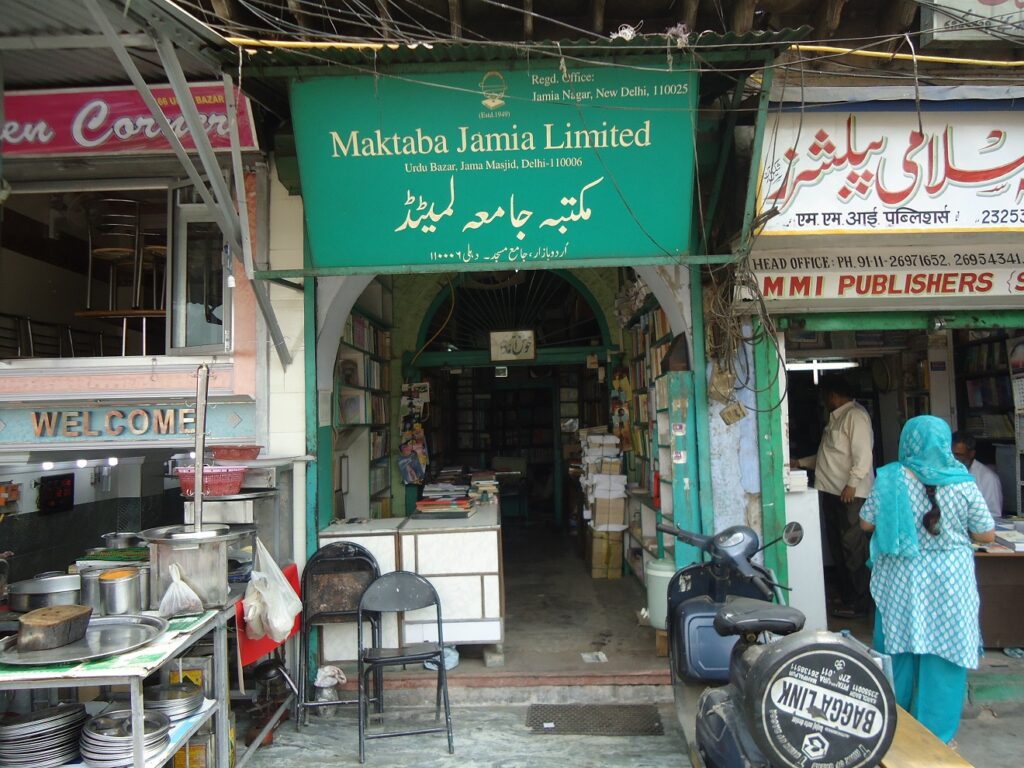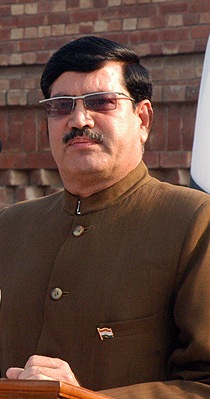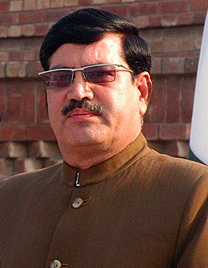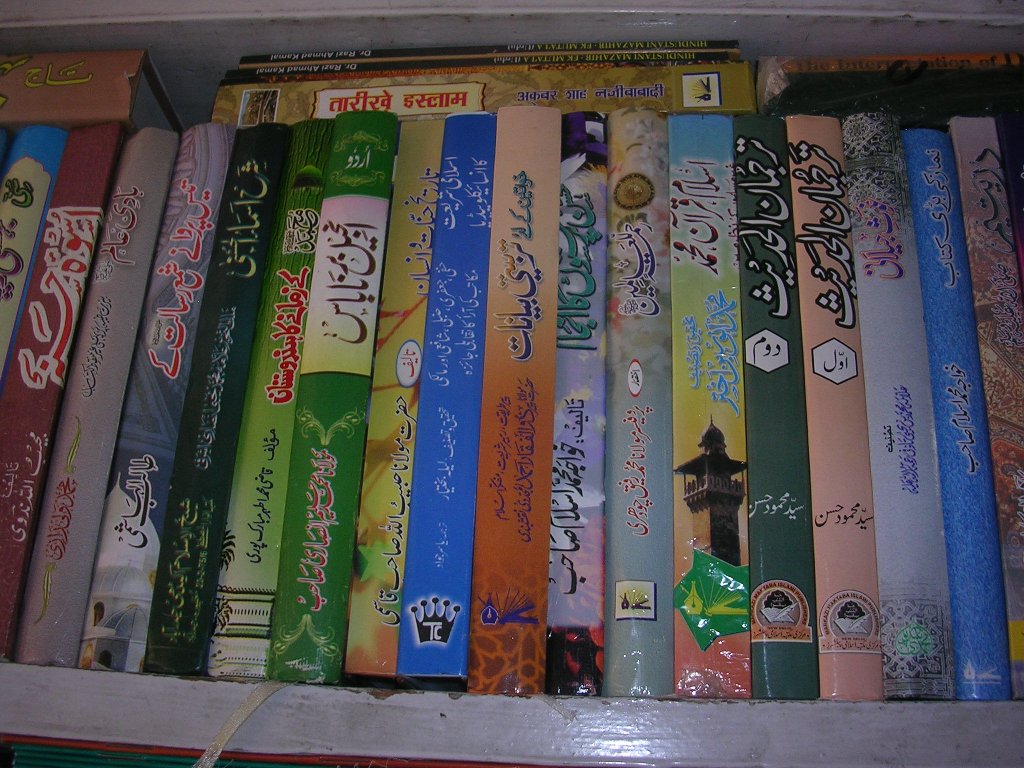We have all grown through the fragrant flavors and flairs of our childhood, one of them being our childhood mother-tongue historic magazines like, “Thakurmar Jhuli” (Bengali), “Khilauna”, Payam-e-Taleem” (Urdu), “Hans” (Marathi), “Parag” (Hindi), “Chitralekha” (Gujarati), “Chandamama” (Telugu), etc. The author “drank” Urdu while suckling his mother and learned the language not from any madrasa, school or college but from these publications only — his treasure trove!
Urdu’s childhood days
As a passionate reader of Urdu magazines (especially children’s), books, and newspapers, the author fondly remembers the childhood memories of how during his formative years, he used to hold the index finger of his mother who used to take him to the Shahjahanabadi walled city’s renowned Urdu book store, Maktaba Jamia Ltd, where, apart from “Payam-e-Taleem”, it’s Urdu monthly for children, files of many other children’s magazines, namely, “Khilauna”, “Toffee”, “Shareer”, “Chandanagri”, “Ghuncha” etc were also available, sometimes with the yearly bundles bound together in a file, at cheapest prices. Shocked to smithereens, the prized and prestigious Urdu bookstore has been closed down.

Since the author’s childhood memories are deeply synched and entrenched with Maktaba Jamia, he remembers three names associated with this heaven of Urdu, namely, Shahid Ali Khan, Haseen Haasaan Nadvi (also, editor, “Payam-e-Taleem”) and Ali Khusro Zaidi. Zaidi, who had retired in 2014, as someone much concerned with Urdu, had been working on the stall till recently on a very petty salary, called it a day after that salary even stopped. Whenever he reminded the authorities of that and conducted a meeting, he was looked down upon as if he were begging and even disparaged. He also stated that of the four appointees, one was pulled back from Jamia University, while another one quit for want of salary. Yet another one had to cater to e-rickshaws to survive by managing square meals! This reminds the author of the incident, when Mumbai’s Maktaba was about to be shut down owing to the paucity of funds, he wrote about its pathetic state of affairs in the newspapers and the effort had worked as some concerned connoisseur of Urdu had been helped by pooling in the required funding. As an Urdu lover, the author can realize the excruciating agony of the workers at the Maktaba.
Maktaba on oxygen!
Prior to this store, the stores in Mumbai and Aligarh too have been locked. What’s inexplicable has been the fact that a huge central university like Jamia Millia Islamia has been at the helm of its affairs, yet the publication house had been in the doldrums, on deathbed, and finally dead! It is easy to blame Jamia Millia Islamia or maybe, an anti-Urdu ambiance in the present governance! Nevertheless, the maximum blame of putting Urdu on oxygen lies with the so-called connoisseurs of Urdu or “Urduwalas”; especially those Urdu professors, who, rather than bringing the Urdu medium schools to the level of elite English medium schools, admit their children in public schools. Apartment from that, in Muslim households, nobody’s bothered to get an Urdu daily or Urdu books and magazines. They don’t teach their kids Urdu at home. The voices and correct pronunciation of Urdu are a past story! Urdu, as a language, needs a kiss of life, its languishing and pining institutions.
Globally famous Urdu writers
Renowned Urdu poets and litterateurs of the time — like Khwaja Ahmed Abbas, Hafeez Jalandhari, Hasrat Jaipuri, Qateel Shifai, Ismat Chughtai, Salam Machhli Shehri, Razia Sajjad Zaheer, Krishan Chander, Raja Mehdi Ali Khan, Balwant Singh, Kanhaiya Lal Kapoor, Ram Pal, Sahir Ludhianavi, Ram Lal, Siraj Anwar, Basheshar Pradeep, Shafiuddin Naiyar, Kaif Ahmed Siddiqui, Dr Kewal Dhir, KP Saxena,sardar Rattan Singh, Joginder Paul, Basheshar Pradeep, Azhar Afsar, Prakash Pandit, Aadil Rasheed, MM Rajinder, Jilani Bano, Naresh Kumar Shad, Abrar Mohsin, Masooda Hayat, Ishrat Rehmani, Abrar Mohsin, Khaliq Anjum Ashrafi — besides many others — got their books published from Maktaba Jamia, as they used to be household names from 1940s to 1990s.
Urdu, is a language of heart, positivity
Urdu is not merely “sher-o-share (poetics), “ghazal” (melodious rendition, “qawwali” (musical Urdu rendition), “masnawi” (story-telling), and “marsiah” (elegy). It’s the epitome of our “Ganga Jamuni tehzeeb” (composite culture). Urdu is a language born out of our syncretism accruing out of the commonality of cultures.” According to an eminent lawyer and lover of Urdu Atyab Siddiqui, also a former legal advisor with Jamia Millia Islamia, writers, poets, and authors are the eyes of the entire social, religious, and political system and they have a huge responsibility towards lovers of language and literature. Urdu is a language of heart and positivity. Hence, they have to be positive and shed all negativity. As the most powerful source of information is the social and electronic media, like the authors, poets, and journalists of other languages, Urdu writers, too, must toe the line of the internet. Fortunately, many of them are already connecting globally via smartphones and computers and taking the language to the masses.
NCPUL might help Maktaba
Opines Prof Aquil Ahmed, director, of NCPUL (National Council for Promotion of Urdu Language), the reason that Urdu proliferated and got promoted was owing to its secular character and a universal base in India and abroad. Today it happens to be one of the most popular of all international languages. Not only that, Urdu is the voice of the sub-continent and has become an important link language for the South Asian Association for Regional Cooperation (SAARC). Regarding the closure of Maktaba, he states that the Jamia Millia Islamia authorities should join heads together to give it a fresh lease of life and that if any assistance is required from NCPUL, he would consider it.
Urdu’s downfall, stall shut, who brothers!
It’s quite some time since the Maktaba has been shut but except for the concerned Urdu lovers like Mohammed Wajihuddin, Shrey Roy, journalists with “The Times of India”, the “Wire” and Masoom Muradabadi, an Urdu author and blogger, hardly anybody seemed bothered. Prof Shehzad Anjum, in charge of Maktaba Jamia, seems redundant and numb regarding the revival of the historic Urdu bookstore! Historically, Urdu newspapers made a solid contribution to the national cause during the freedom struggle. Urdu was basically India’s lingua franca, a language of our amalgamated cultural heritage belonging to all Indians, irrespective of caste, creed, or religion. After 1947, Urdu was hit by a communalist mindset thinking it was only the language of Muslims and responsible for Partition. This is entirely wrong — languages have no religion, region or community fixation. Urdu has to become the language of the bazaar to attract big brands like Tata, Birla, Dabur, Infosys, etc. that don’t advertise in Urdu press. Unless Urdu is associated with the profession and market and the latest technology, it can’t prosper.
With “Rekhta”, Urdu thrives, throngs!
Nevertheless, Urdu, being a glorious language of composite culture and interfaith bonding, has been thriving and thronging as in “Rekhta” festivals, created by Sanjiv Saraf, an entrepreneur and business magnate. Many litterateurs and lovers of Urdu like, Sharmila Tagore, Prem Chopra, Prasoon Joshi, Javed Siddiqui, Saurabh Shukla, Anu Kapoor, Salman Khursheed, Basheer Badr, Kumar Vishwas, Ustad Iqbal Khan, Farhat Ahsas, Faridoon Shahryaar, Danish Iqbal and many others are featured in the delightful Urdu activities including the “mushaira” (poetic congregation), “dastangoi” (story-telling), “nukkad natak” (play), critical appreciation, “qawwali” (musical saga), “ghazal sarai” (recitation of Urdu poetry), “baitbaazi” (poetic puzzling) and “nashist” (discussions). Let’s hope, some saviour of Urdu, like Sanjiv Saraf, comes to the rescue of Maktaba Jamia Ltd!
Historically, Urdu newspapers made a solid contribution to the national cause during the freedom struggle. Having realized Urdu’s importance, national leaders responded well to slogans like “Inquilab zindabad” by Subhash Chandra Bose, songs like “Sarfaroshi ki Tamanna” by Ram Prasad Bismil and “Sarey jahan se achha” by Iqbal. Urdu was basically India’s lingua franca, a language of our amalgamated cultural heritage belonging to all Indians, irrespective of caste, creed, or religion.
Pledge to rejuvenate, and revive Maktaba!
Owing to his attachment to Urdu, the author leaves a proposal for the vice-chancellor of Jamia Millia Islamia that, if permitted, being a retired teacher, he would be ready to revive and rejuvenate Maktaba Jamia such that it regains its pristine glory.
FIROZ BAKHT AHMED, A-202 Adeeba Market and Apartments, Near Rehmani Masjid, Main Road, Zakir Nagar, New Delhi 110 025. Ph.: 98109-33050 E-mail: [email protected]


Firoz Bakht Ahmed is a former chancellor of Maulana Azad National Urdu University (MANUU), commentator on educational and social issues, community worker and the grandnephew of Bharat Ratna Maulana Abul Kalam Azad. He lives in Delhi




